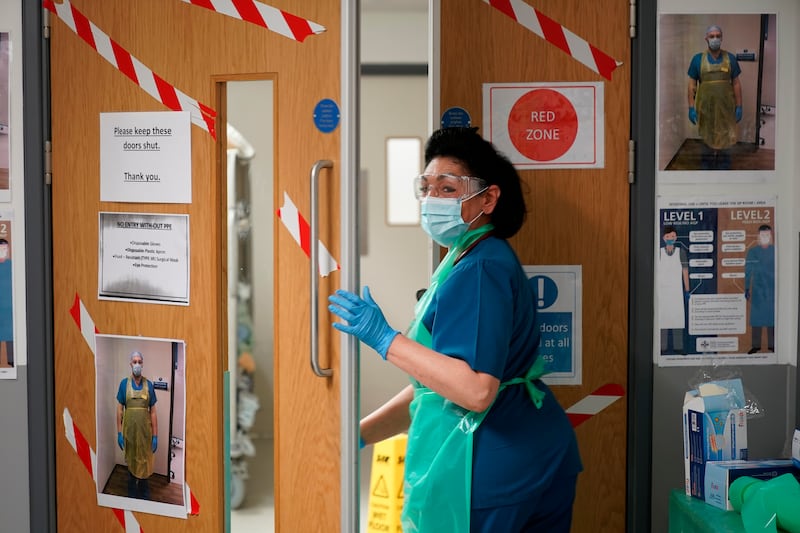When people hear the word “nurse”, a traditional image often comes to mind – perhaps a caregiver in a crisp uniform, tending to patients in a hospital ward. Yet, as a nurse who has journeyed from clinical practice into research, I can tell you that nursing today transcends this conventional image, embracing a multitude of advanced and specialist roles that reach far beyond the walls of a hospital.
Nursing has evolved into a complex, multifaceted field, with nurses playing crucial roles in patient care, education, research, leadership and even technology. In the US alone, more than two million healthcare professionals are employed as clinical research nurses. While caregiving remains at the heart of what nurses do, the scope of their responsibilities has expanded considerably.
One of the most significant trends in nursing is the shift toward research and evidence-based practice. Nurses are increasingly involved in conducting research studies, analysing data, and contributing to the scientific understanding of health care.

They are leading clinical trials, exploring new treatment methods and developing best practices that improve patient outcomes. This shift is driven by the recognition that nurses, with their direct patient contact, are uniquely positioned to identify areas for improvement and contribute to the body of medical knowledge.
Nurses are also at the forefront of healthcare innovation, with their hands-on experience with patients providing valuable insights into the practical challenges of healthcare delivery. They are actively involved in designing new technologies, creating patient-centric care models, and implementing digital health solutions.
Their leadership brings a unique perspective that prioritises patient care and team collaboration. They are now also frequently stepping into management positions, directing nursing departments, and even leading entire healthcare organisations.
As an associate director for nursing research and a clinical professor, I am fortunate to work in a role that combines my passion for patient care with my dedication to advancing medical knowledge. However, my journey into research didn’t start in a lab – it began at the bedside, like many nurses.
I quickly discovered that nursing requires not only compassion and caregiving skills but also critical thinking, problem-solving, innovation and a deep understanding of medical science. A desire to improve patient care drove me to ensure that research findings were quickly and effectively translated into clinical care.
Today, nurses are also becoming prominent educators and mentors, sharing their knowledge and experience with the next generation of healthcare professionals. They are involved in nursing education programmes, developing curriculums that reflect the latest trends in health care, and providing mentorship to nursing students, new graduates and colleagues beginning to combine research with a clinical role.
As someone who has spent more than two decades focusing on improving diabetes care through better diagnosis, I have experienced first-hand how nursing can drive significant change in the healthcare system.
In my role as a clinical academic, I have dedicated my career to understanding and treating monogenic diabetes, a rare form of diabetes that is often misdiagnosed. Misdiagnosis leads to unnecessary insulin injections for many patients, affecting their quality of life and causing undue stress.
In the UK, the role of advanced nurse practitioners and consultant nurses is constantly growing, allowing us to take on responsibilities that were once reserved for doctors, with increased activities incorporating digital technologies.
Many advanced nurse practitioners and consultant nurses have the authority to prescribe medication, perform advanced procedures, and lead clinical teams. These advanced roles demonstrate the evolving scope of nursing and the significant contributions nurses can make to health care.
Additionally, many nurses pursue further education, gaining master’s degrees, PhDs and specialised certifications in their specialist areas. (In my case, that included undertaking a PhD in medical science and certificates in diabetes care, genetic counselling, genomic medicine and medical education.)
With women comprising 70 per cent of the healthcare workforce globally and almost 90 per cent of the nursing workforce, it is important to note the potential impact of female healthcare providers on patient outcomes.
A recent study published in the Annals of Internal Medicine journal found that patients treated by female physicians had a lower risk of mortality and re-admission compared to those treated by male physicians. This finding highlights the importance of diversity in health care, but further work is required to understand the possible impact of the healthcare worker’s gender on outcomes in other areas.
Ultimately, nursing is a profession that requires continuous learning and adaptation. Whether it is through research, advanced clinical practice or exploring new technologies, we are constantly finding innovative ways to improve patient care. The evolution of nursing underscores that while our roles are diverse, our commitment to patient well-being remains steadfast.





